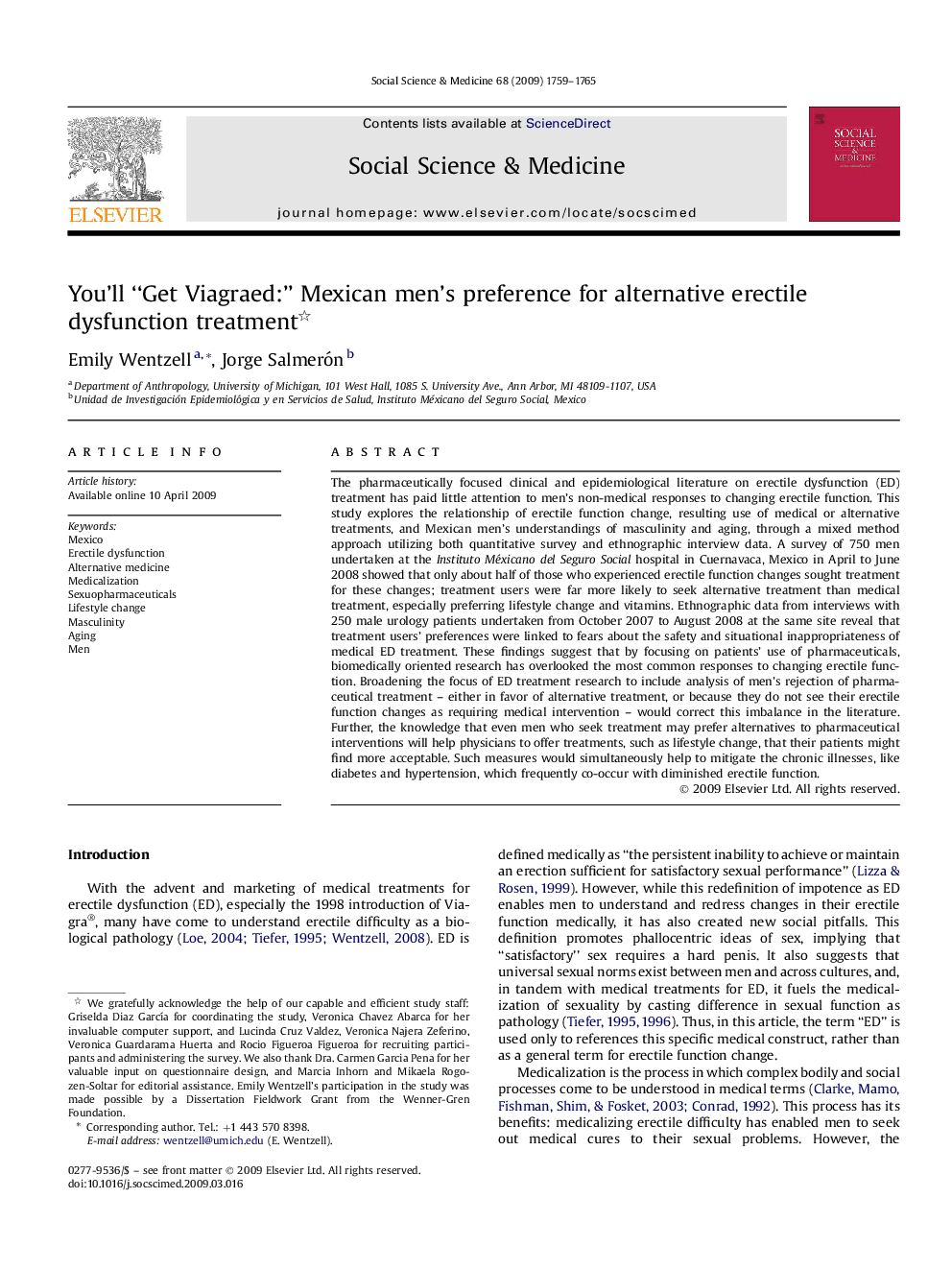| Article ID | Journal | Published Year | Pages | File Type |
|---|---|---|---|---|
| 953603 | Social Science & Medicine | 2009 | 7 Pages |
The pharmaceutically focused clinical and epidemiological literature on erectile dysfunction (ED) treatment has paid little attention to men's non-medical responses to changing erectile function. This study explores the relationship of erectile function change, resulting use of medical or alternative treatments, and Mexican men's understandings of masculinity and aging, through a mixed method approach utilizing both quantitative survey and ethnographic interview data. A survey of 750 men undertaken at the Instituto Méxicano del Seguro Social hospital in Cuernavaca, Mexico in April to June 2008 showed that only about half of those who experienced erectile function changes sought treatment for these changes; treatment users were far more likely to seek alternative treatment than medical treatment, especially preferring lifestyle change and vitamins. Ethnographic data from interviews with 250 male urology patients undertaken from October 2007 to August 2008 at the same site reveal that treatment users' preferences were linked to fears about the safety and situational inappropriateness of medical ED treatment. These findings suggest that by focusing on patients' use of pharmaceuticals, biomedically oriented research has overlooked the most common responses to changing erectile function. Broadening the focus of ED treatment research to include analysis of men's rejection of pharmaceutical treatment – either in favor of alternative treatment, or because they do not see their erectile function changes as requiring medical intervention – would correct this imbalance in the literature. Further, the knowledge that even men who seek treatment may prefer alternatives to pharmaceutical interventions will help physicians to offer treatments, such as lifestyle change, that their patients might find more acceptable. Such measures would simultaneously help to mitigate the chronic illnesses, like diabetes and hypertension, which frequently co-occur with diminished erectile function.
